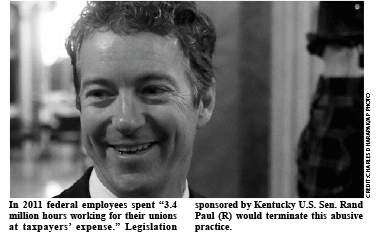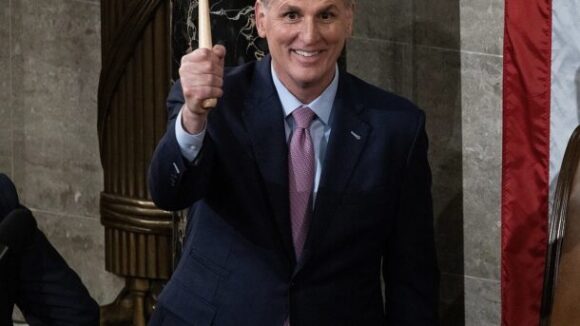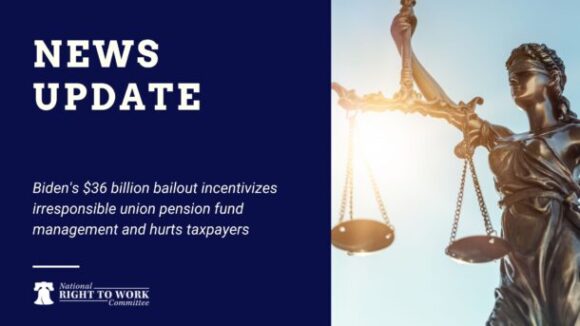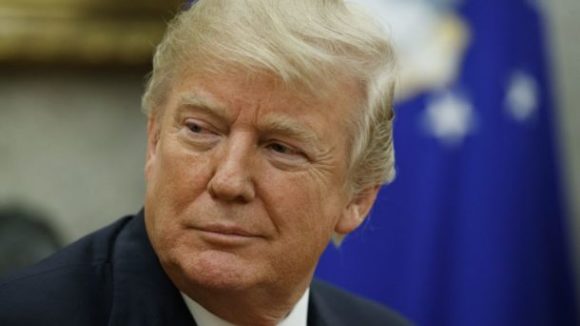Next Government Union Bailout Can Be Stopped
Speaker Kevin McCarthy has vowed that the House will “use the power of the purse” to “check” Big Labor President Joe Biden’s policies.
 Committee Fights Against ‘Official Time’ For Federal Union Bosses
Committee Fights Against ‘Official Time’ For Federal Union Bosses
(click to download newsletter)
One critical early milestone in the rise of government unionism in America was President John F. Kennedy’s 1962 signing of Executive Order 10988, empowering Organized Labor to secure “exclusive” bargaining control over federal employees.
Apologists for the Kennedy edict often claim it established federal employees’ right to join a union. But this is simply not the case.
With the exception of the military and civilian employees holding certain critical national-security jobs, federal employees had long had the right to join a union in 1962.
Best Solution Would Be Monopoly-Bargaining Repeal
As Mallory and Elizabeth Factor explained in Shadowbosses, their best-selling 2012 expose of government union abuses, what E.O.10988 changed is that, for the first time, “federal employees could be forced to accept a union as their ‘exclusive’ bargaining representative, just like in the private sector.”
Just as it regularly does in state and local government and the private sector, federal union monopoly bargaining routinely impedes the introduction of new technologies and other productivity-enhancing innovations.
One notorious example cited by the Factors is federal air traffic controller union bosses’ stubborn and largely successful resistance to shutting down antiquated radar towers and replacing them with new facilities that would make airplane travel substantially safer and less expensive.
The best means to address Big Labor-perpetuated waste and inefficiency in the federal workplace and protect independent-minded civil servants’ freedom of association would be to repeal the codification of E.O.10988 signed by President Jimmy Carter 36 years ago.
But adoption into law of U.S. Sen. Rand Paul’s (R-Ky.) Federal Employee Accountability Act (S.785) would be a significant, albeit modest, step in the right direction.
Mr. Paul is one of Capitol Hill’s strongest proponents of Right to Work legislation.
His Federal Employee Accountability Act would mitigate the harm inflicted by the 1978 federal monopoly-bargaining statute by repealing its two “official time” provisions.
Roll-Call on Reform Will Reveal Big Labor Politicians’ Extremism
These “official time” provisions authorize federal employees who are part- or full-time union officials to collect their taxpayer-funded salaries and benefits for conducting union business, rather than for serving the public.
S.785 would ensure that civil servants are performing the job they were hired to do, rather than working for the union on the taxpayer dime.
“Clearly, S.785 represents a positive step,” commented Mark Mix, president of the National Right to Work Committee.
“Debates and recorded congressional votes on reform measures like Rand Paul’s Federal Employee Accountability Act are useful for several reasons.”
Personnel Agency Estimate: ‘Official Time’ Costs Federal Taxpayers $156 Million a Year
One significant reason is that they “show just how far many federal politicians today are willing to go to please the union officials who are their paymasters,” Mr. Mix noted.
And the Right to Work Committee’s tireless efforts to mobilize public opposition to monopolistic government unionism are “gradually making it more difficult for politicians to get away with lining Big Labor’s pockets with taxpayers’ money.”
According to the estimate of the Office of Personnel Management, the agency charged with overseeing the federal civil service, in 2011 “official time” cost taxpayers roughly $156 million.
That year, according to Washington Examiner reporter Mark Flatten, federal employees “spent 3.4 million hours working for their unions at taxpayers’ expense, the equivalent of more than 1,700 full-time positions.”
“As pro-Right to Work Georgia Republican Congressman Phil Gingrey has said regarding ‘official time’: ‘It clearly is a subsidy for the unions.’ And it needs to be stopped,” declared Mr. Mix.
“Until the day Congress finally steps up to the plate and revokes the monopoly-bargaining privileges it statutorily handed to federal union bosses in 1978, taxpayers at least shouldn’t be forced to fund union class warfare and lobbying under the guise of ‘official time.’
“Besides making it effectively impossible for Big Labor to get away with this taxpayer rip off, enactment of S.785 could give momentum to related taxpayer-friendly efforts to bar ‘official time’ in state and local government agencies.”

Speaker Kevin McCarthy has vowed that the House will “use the power of the purse” to “check” Big Labor President Joe Biden’s policies.

Biden's $36 billion bailout incentivizes irresponsible union pension fund management and hurts taxpayers

An opportunity looms for President Trump to save taxpayers billions. Will he seize it? Credit: AP file photo Union Bosses Poised…